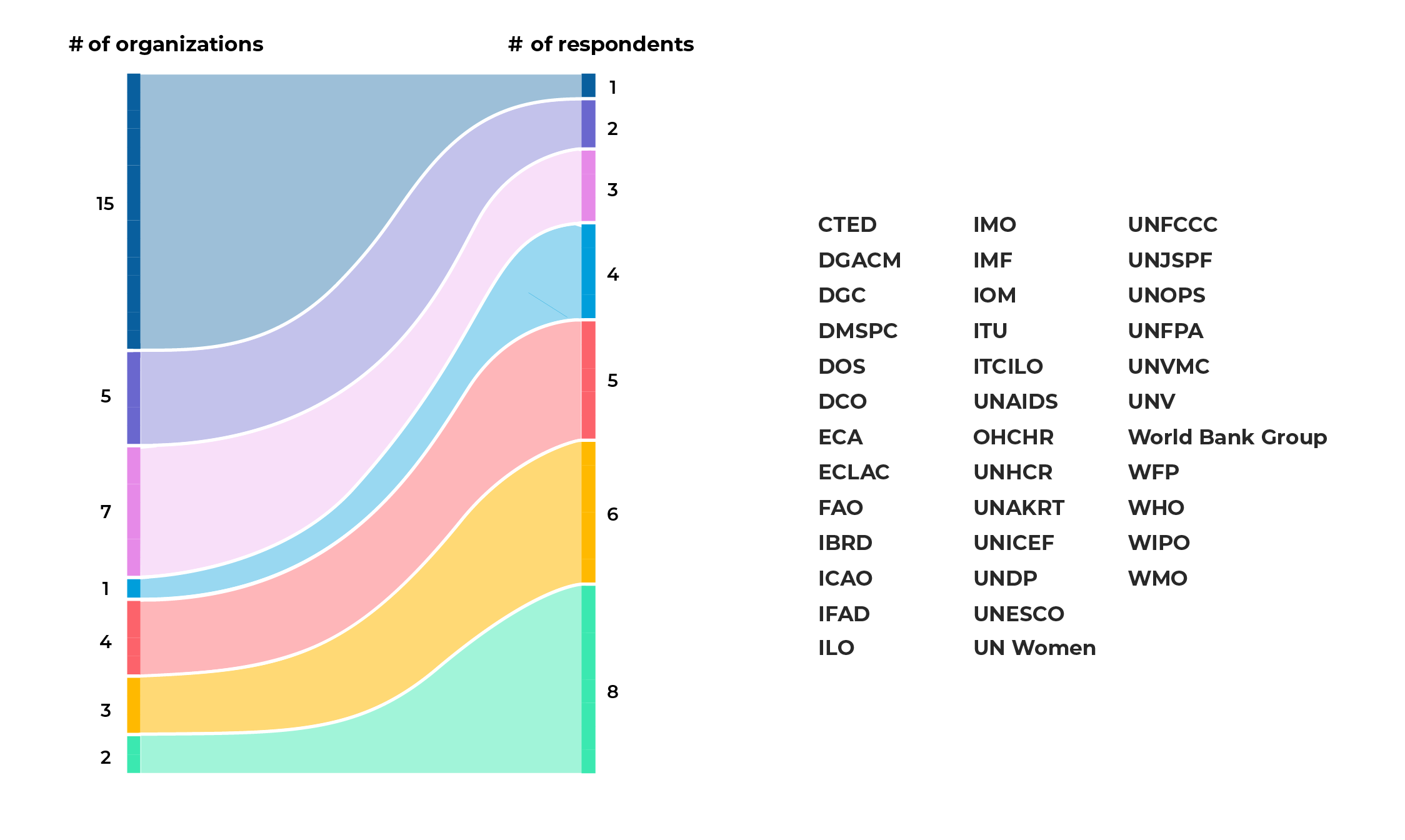Methodology and process
The purpose of The State of Change Management in the UN System 2024 was to shed light on the practice of change management in the UN, specifically how it is:
- structured and resourced
- implemented and monitored
- perceived and supported
To this end, between July and August 2023, we collected quantitative and qualitative data via an online questionnaire administered to UN change management practitioners through Survey Monkey.
Process overview
June 2023
Design & testing
5 July to 10 August 2023
Survey administration
10 to 20 August 2023
Data aggregation & initial analysis
22 to 25 August 2023
Network discussion of analysis & observations
28 August to 24 November 2023
Additional analysis & content preparation
